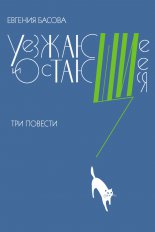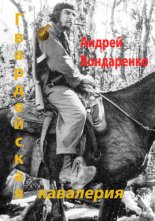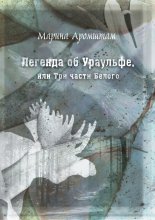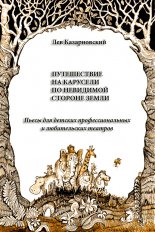Послания любви. 365 писем Ошо Раджниш (Ошо) Бхагаван
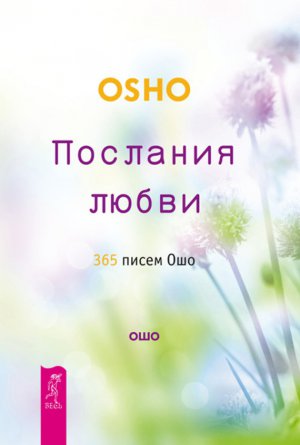
One belief is based on the fear of death,
the other on the end of the body.
I want man not to get entangled in beliefs and opinions,
because that is not the direction to experiencing, to knowing.
And what else can be found by thinking about death
but belief systems and dogmas?
Thought never takes one beyond the known.
And death is unknown.
Hence, it cannot be known through thinking.
I want to turn your attention towards life.
Life is – here and now.
One can enter it.
Death is never here and now –
either it is in the future or in the past.
Death is never in the present.
Has this fact ever come to your attention,
that death is never in the present?
But life is always in the present – neither in the past
nor in the future.
If it is, it is now; otherwise it never is.
Hence it can be known, because it can be lived,
there is no need to think about it.
In fact, those who would think about it will miss it.
Because the movement of thought is also only of the past
or in the future;
thought is not in the present.
Thought too is a companion of death.
In other words, thought is dead,
there is no element of life in it.
Aliveness is always in the present – it is the present.
Its manifestation is now, absolutely now;
here, absolutely here.
Hence, there is no thinking about life,
there is only experiencing.
Not an experience, but experiencing.
Experience means, it has already happened;
experiencing means, it is happening.
Experience has already become a thought,
because it has already happened.
Experiencing is thoughtless:
wordless – silent – void.
Hence I call thoughtless awareness
the door to experiencing life.
And the one who comes to know life comes to know all.
He comes to know death as well
because death is nothing but a fallacy
born out of not knowing life.
One who does not know life
naturally believes himself to be the body.
And the body dies, the body is destroyed;
the entity called body disappears.
It is this that gives birth to the concept
that death is a total end.
Only those who are a little more courageous
accept this concept.
It is also out of this very fallacy of believing oneself to be the body
that the fear of death is born.
It is the people suffering this fear who start chanting,
“the soul is immortal, the soul is immortal.”
The fearful and weak seek refuge in this way.
But both these concepts
are born out of one and the same fallacy.
These are two forms of the same fallacy
and are two different reactions of two types of people.
But, remember, the fallacy of both is the same,
and in both ways it is the same fallacy
that is strengthened.
I do not want to give any kind of support to this fallacy.
If I say the soul is not immortal, then that is an untruth.
If I say the soul is immortal,
then that becomes an escape from your fear.
And those who are in fear
are never able to know the truth.
Hence, I say death is unknown.
Know life. Only that can be known.
And upon knowing that, immortality is also known.
Life is eternal.
There is no beginning and no end to it.
It manifests, it unmanifests.
It moves from one form to another form.
In our ignorance,
these transition points of change look like death.
But for one who knows,
death is nothing more than changing houses.
Certainly there is rebirth;
but for me it is not a doctrine, it is an experience.
And I don’t want to make it a doctrine for others either.
Doctrines have badly undermined the truth.
I want every person to know it for themselves.
Nobody can perform this act for the other.
But, through doctrines,
it is this very act that appears to have been accomplished,
thus everybody’s individual search
has become dull and dead.
Believing in the doctrines and scriptures
one has sat down quietly,
as if one has neither to know anything for oneself,
nor has to do anything about finding the truth.
This situation is utterly suicidal.
Hence, I don’t want to participate
in this vast scale arrangement
for killing man through the repetition of doctrines.
I want to displace all the established doctrines,
because this alone seems compassionate to me.
This way, all that is untrue will be destroyed.
And the truth is never destroyed,
it is ever available in its eternal freshness
to those who seek.
52. Love.
I received your letter.
I am always with you.
Don’t be worried,
don’t be sad,
and leave your sadhana in the hands of God.
Let his will be done.
Be like a dry leaf,
let the winds take you where they will.
Isn’t this what is meant by shunya (nothingness)?
Do not swim,
just float.
Isn’t this what is meant by shunya?
My regards to all.
1969
53. Love.
Your letter has come.
Love has not to be asked for –
it is never obtained by asking.
Love comes through giving –
it is our own echo.
You feel my love pouring on you
because you have become a river of love
flowing towards me,
and when your love flows like this towards all
you will find the whole world
flowing in love towards you.
To respond with unconditional love towards all,
towards that which is,
is the God-experience.
54. Love.
Can two people ever meet?
It is just not possible on this earth,
communication seems impossible –
but at times the impossible happens.
The other day it did.
Being with you, I felt meeting is possible,
and also communication,
and without words, too.
Your tears answered me.
I am deeply grateful for those tears.
Such response is very rare.
I have seen your Madhu Shala,
seen it again and again.
If I could sing
I would sing the same song that is there.
I call that sannyas the real sannyas
which accepts the world with joy.
Aren’t sansara and moksha really one?
Duality exists in ignorance,
in knowledge there is only one.
Oh, can that really be religion
which cannot sing and dance the songs of bliss and love?
P.S. I hear you are due to come here.
Come, and come soon.
Who can trust time?
Look – it is morning and the sun rises.
How long will it be before it sets?
55. Love.
I am one with all things –
in beauty, in ugliness,
for whatsoever is, there I am.
Not only in virtue
but in sin too I am a partner;
and not only heaven but hell too is mine.
Buddha, Jesus, Lao Tzu –
it is easy to be their heir.
But Genghis, Taimur and Hitler?
They are also within me!
No, not half – I am the whole of mankind!
Whatsoever is man’s is mine –
flowers and thorns,
darkness as well as light.
And if nectar is mine, whose is poison?
Nectar and poison – both are mine.
Whoever experiences this I call religious,
for only the anguish of such experience
can revolutionize life on earth.
56. Love.
I have received your letter.
I was very glad indeed to get it,
more so since you have sent a blank sheet.
But I have read in it all that you have not written
but wanted to write.
Besides, what can words say?
Even after writing,
what you had meant to write remains unwritten.
So your silent letter is very lovely.
As it is, whenever you come to see me you are mostly silent,
but your eyes tell all, and your silence too.
Some deep thirst has touched you,
some unknown shore has called you.
